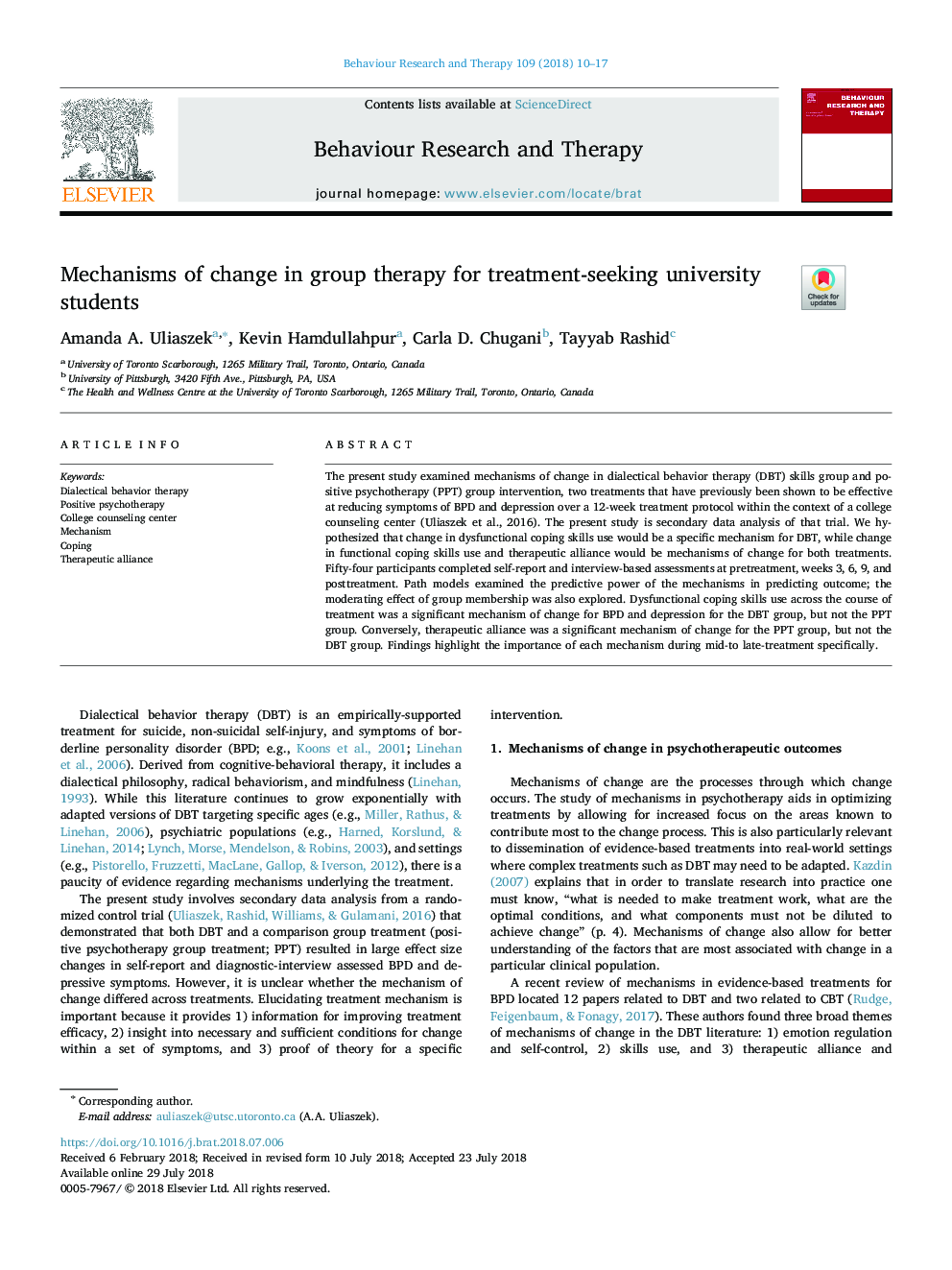| Article ID | Journal | Published Year | Pages | File Type |
|---|---|---|---|---|
| 7261714 | Behaviour Research and Therapy | 2018 | 8 Pages |
Abstract
The present study examined mechanisms of change in dialectical behavior therapy (DBT) skills group and positive psychotherapy (PPT) group intervention, two treatments that have previously been shown to be effective at reducing symptoms of BPD and depression over a 12-week treatment protocol within the context of a college counseling center (Uliaszek et al., 2016). The present study is secondary data analysis of that trial. We hypothesized that change in dysfunctional coping skills use would be a specific mechanism for DBT, while change in functional coping skills use and therapeutic alliance would be mechanisms of change for both treatments. Fifty-four participants completed self-report and interview-based assessments at pretreatment, weeks 3, 6, 9, and posttreatment. Path models examined the predictive power of the mechanisms in predicting outcome; the moderating effect of group membership was also explored. Dysfunctional coping skills use across the course of treatment was a significant mechanism of change for BPD and depression for the DBT group, but not the PPT group. Conversely, therapeutic alliance was a significant mechanism of change for the PPT group, but not the DBT group. Findings highlight the importance of each mechanism during mid-to late-treatment specifically.
Related Topics
Health Sciences
Medicine and Dentistry
Psychiatry and Mental Health
Authors
Amanda A. Uliaszek, Kevin Hamdullahpur, Carla D. Chugani, Tayyab Rashid Tayyab Rashid,
